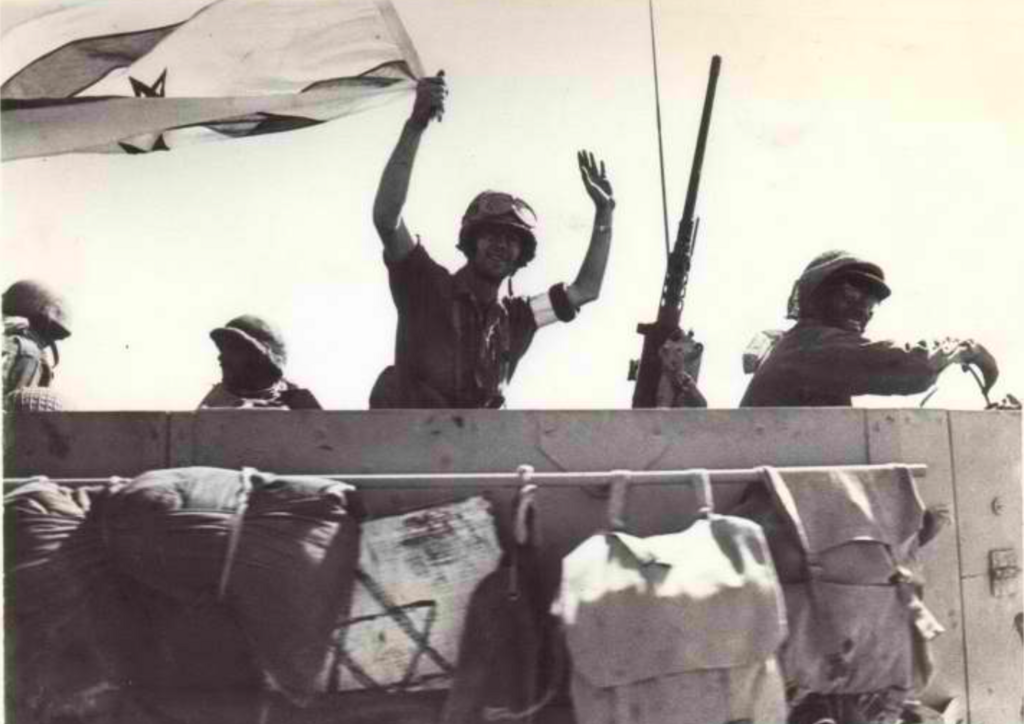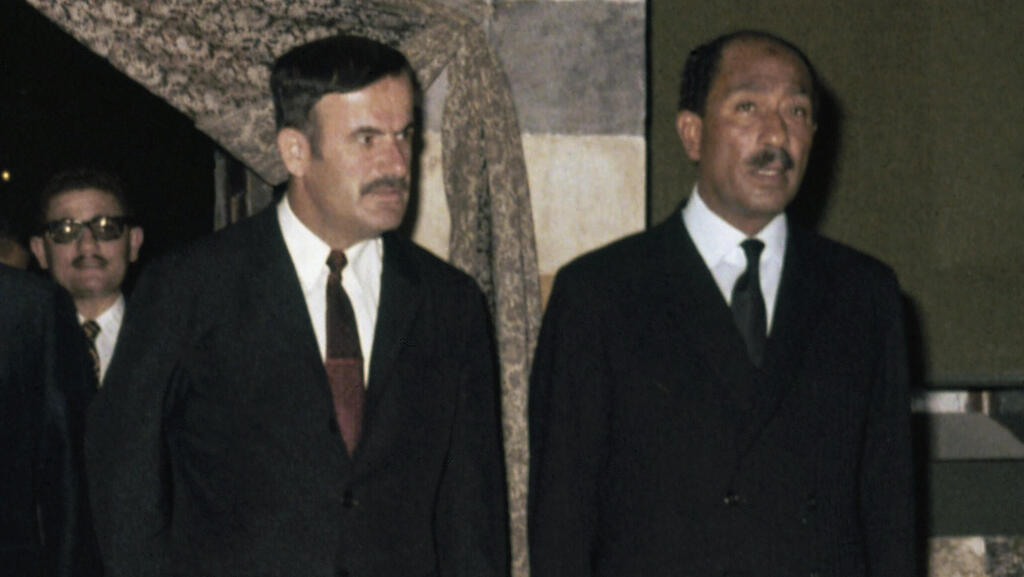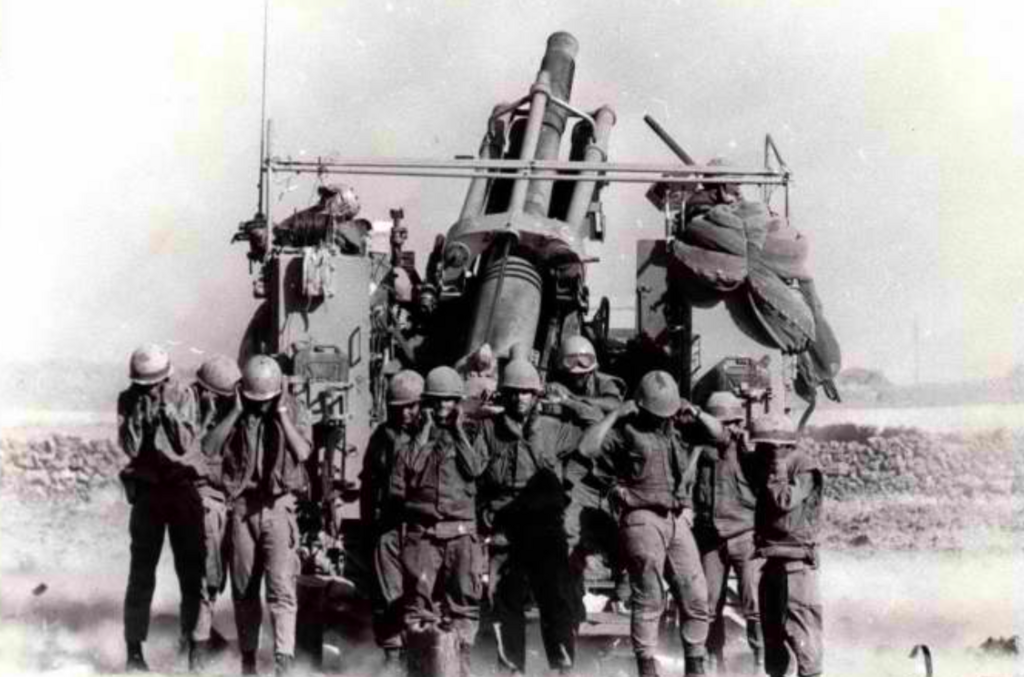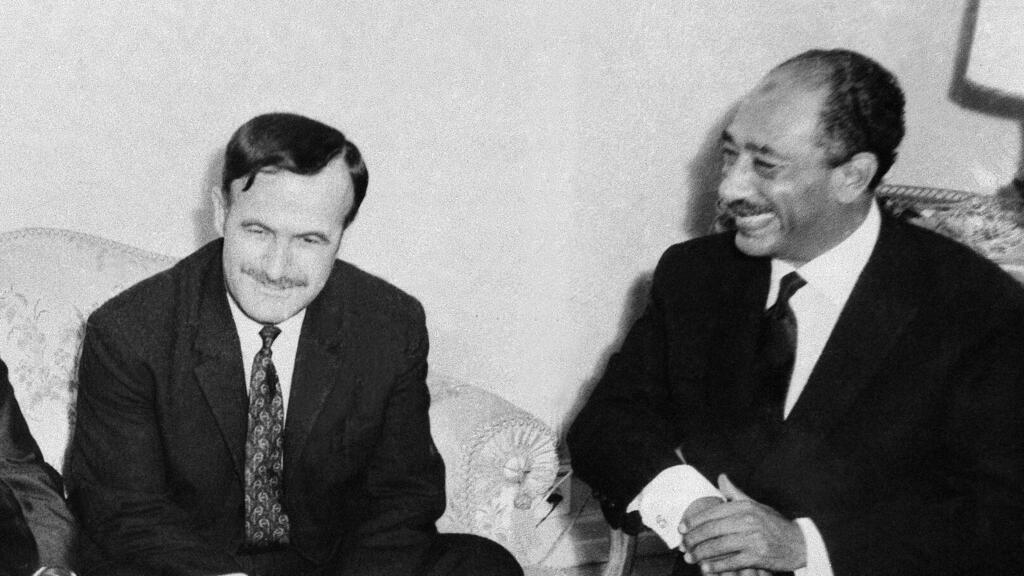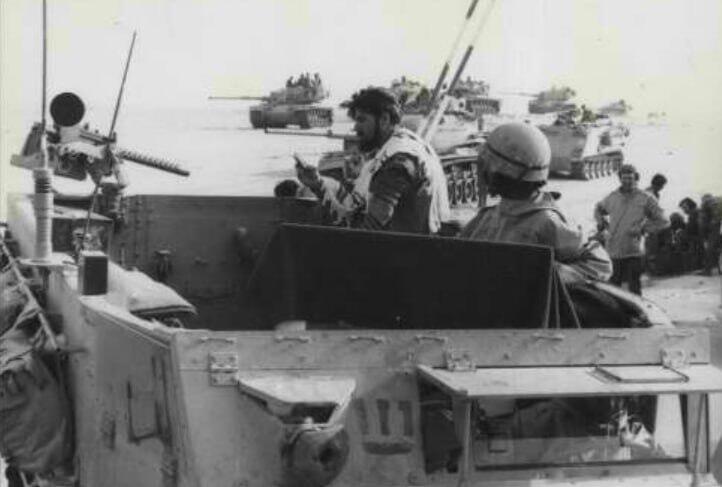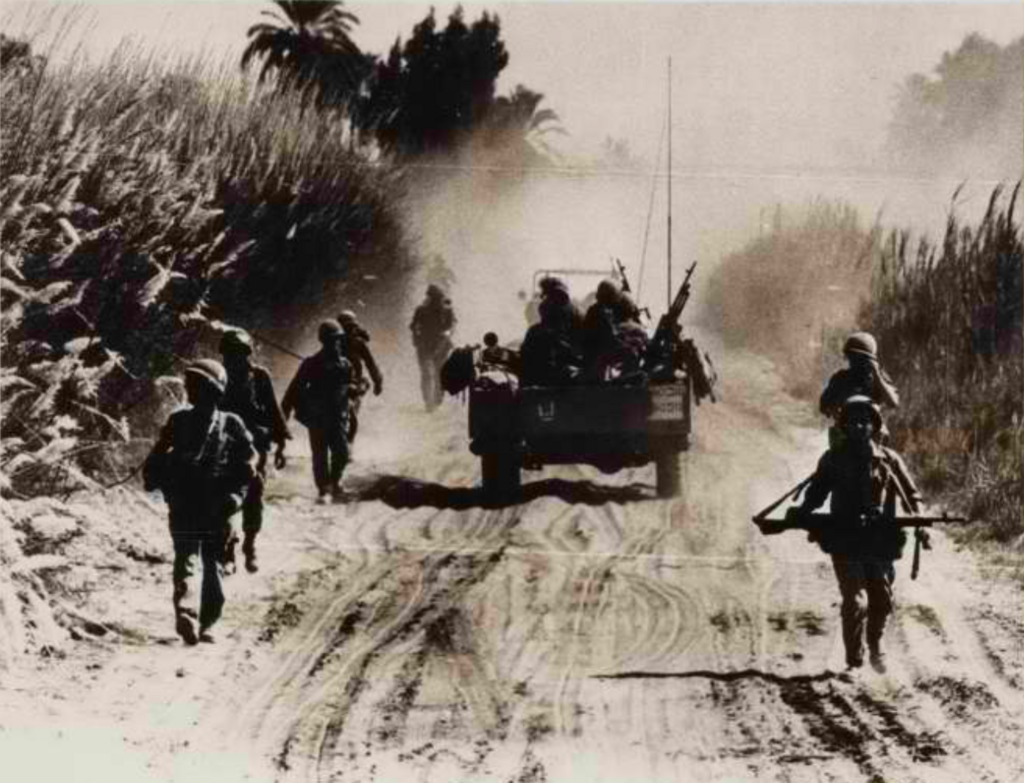In the fifty years since the Yom Kippur War, a culture of finger-pointing, blame and lamentation has taken root in Israel. However, in the face of all this, it's important to remember that the Yom Kippur War, which began as a fiasco, ended with a resounding military victory and existential diplomatic and strategic achievements. We paid a heavy price in the lives of soldiers, but at no point during that bitter war did we face the prospect of the destruction of our homeland.
More stories:
Moreover, the Yom Kippur War solidified the existence and presence of the State of Israel as a sovereign entity and a stable national home for the Jewish people in the Middle East. This war also provided the people of Israel, both within the state and in the Diaspora, with a sense of existential security they had not felt before.
In fact, the Yom Kippur War was the concluding phase of the Seven Years' War that began with the Six-Day War in June 1967, continued with the War of Attrition and ended in 1974 with the disengagement agreements with Egypt and Syria.
Over the years, Arab countries saw a paradigm shift. During the War of Independence, the Jewish settlement in the Land of Israel, with the support of the Jewish Diaspora, realized and defended its right to self-determination, after it had gained formal recognition from the United Nations General Assembly.
In the Six-Day War, Arab countries once again attempted to annihilate the State of Israel, this time with the assistance of the Soviet Union. They failed and even lost extensive territories that the IDF captured.
Even then, the Arab-Soviet coalition set for itself a more modest strategic goal: instead of destroying the State of Israel – to erase the outcomes of the defeat in the Six-Day War and at least return some of the lost territories to the Arabs. During the War of Attrition, and ultimately in the Yom Kippur War, the IDF prevented the Arab-Soviet coalition from achieving this more modest goal.
Viewed globally, the Arab-Soviet coalition suffered a crushing and final defeat at the hands of the Israeli-American coalition. This solidified the position of the U.S. as the dominant superpower in the Middle East for decades.
When the Arab world pivoted
The Arab defeat in the Seven Years' War, especially in the Yom Kippur War, proved to Israel's adversaries that even under their most optimal conditions, they couldn't, through a coordinated conventional military attack from multiple fronts, "wipe out the State of Israel" and "throw the Jews into the sea.”
As a result, since the war, Israel's adversaries have definitively abandoned the strategy to destroy the Jewish state through a multi-frontal conventional military attack on all fronts. Some of them, like Egyptian President Sadat and King Hussein of Jordan, signed peace treaties with Israel. The others, led by Iran, Syria and Hezbollah, adopted a strategy of attrition through terrorism and massive firepower targeting the Israeli home front.
The goal of the attrition strategy is to cause the internal collapse of the State of Israel. By means of repeated and recurring assaults that inflict heavy psychological damage on citizens, cause extensive physical and economic destruction and incessantly disrupt the daily life and economy of Israeli citizens. Concurrently, on the international stage, there is an ongoing campaign against Israel that combines state de-legitimization and intensified propaganda warfare with a nuclear threat.
All these are intended, at the end of a prolonged process, to lead Israeli Jews, who are worn out by incessant internal and external conflicts, to massively migrate "back to their countries of origin." Their place in the "land of Palestine" from the Mediterranean to the Jordan will be taken by the Palestinians.
What is happening these days within Israel is perceived in the radical Muslim world as validation of this strategy's correctness, and a clear sign that it is beginning to bear fruit.
Arrogance turned into ideology
Like many others, the war marked the end of my age of innocence. Since then, I have ceased to believe in the declarations of our political and security leaders and I approach them with skepticism, even suspicion, until proven otherwise. Above all, I no longer automatically trust the judgment of "those above", as was the case before that war.
From the failure of the Military Intelligence in the Yom Kippur War, I learned that anyone who doesn't periodically undertake a fundamental and uncompromising reality check, and doesn't draw conclusions from it, will eventually pay a high price.
Eli Zeira's "concept" and his group within Military Intelligence stemmed from three sources: the hubris and contempt for Arabs after the resounding military victory of the Six-Day War, the false alarm that wasn't realized in May 1973 and the group dynamics of knowledgeable and charismatic people who turned the arrogance into an ideology.
From the opening hours of the Yom Kippur War, I learned that the "March of Folly" is not just a term coined by historian Barbara Tuchman, but a chronic ailment of mankind. A disease that causes even wise people to ignore the writing on the wall if it doesn't fit their agenda or a particular interpretation of reality they adhere to.
The ones responsible for the intelligence failures that allowed Egypt and Syria to surprise us both strategically and tactically at the beginning of the war were the head of Military Intelligence (Aman) Eli Zeira and several senior members of Aman who shared his "conception."
Senior political and military officials – Golda Meir, Moshe Dayan and IDF Chief of Staff Dado (David Elazar) – were culpable for not insisting on preparations as warnings accumulated. Even when they became convinced that war was imminent, they prioritized political considerations and did not call up the reserves in time, nor did they launch a pre-emptive strike due to fears of an American and international reaction.
Alert that failed political echelon, weakened the IDF
The Blue-White alert of May 1973 had two outcomes, one very negative and the other very positive. The negative result was that the position of Eli Zeira, and Aman in general, was significantly strengthened. This was because he doubted the immediate war warning issued by the Mossad in May 1973. Zeira and his team assessed then that Egypt and Syria would not initiate war, and in hindsight, they were correct.
This fact influenced Golda, Dayan and Dado to dismiss their own opinions and concerns due to Zeira's assessments when Mossad Director Zvi Zamir provided real-time alerts about a coordinated attack on the Golan and the Suez front in October 1973, on the eve of Yom Kippur.
After the war, it turned out the alert was accurate. Sadat and Assad indeed intended to initiate war in May 1973, but the Syrian president backed down at the last minute, claiming he was not yet ready. He wanted to receive more tanks from the Soviet Union, so Sadat agreed to postpone the coordinated attack to October.
The positive outcome was that, as a result of the alert in May, the IDF declared a Blue-White alert, which lasted for several months. During this readiness period, reserve forces trained intensively, new armored units were formed and large replenishments of ammunition, spare parts, and additional combat equipment were acquired. Thanks to this readiness, the IDF was much better prepared for the war, and reserve units managed to equip themselves and reach the various fronts within hours, instead of days.
The negotiations Golda conducted with U.S. Secretary of State Henry Kissinger about supplying Israel demonstrate that one cannot even rely on friends like the U.S. during active wartime. Equipment and supplies must be readily available and should not serve as leverage for political pressure on us. In this respect, the Blue-White readiness was a godsend.
Military Insights
Intelligence: The war caught us by surprise despite an abundance of high-quality intelligence. The failure of the initial days stemmed from the fact that our military and political leadership did not draw the right conclusions from it. In contrast, there was a severe lack of basic and tactical intelligence on the battlefronts. What did exist was of poor quality and reliability, resulting from field research and conclusions that were not thoroughly examined and validated.
8 View gallery
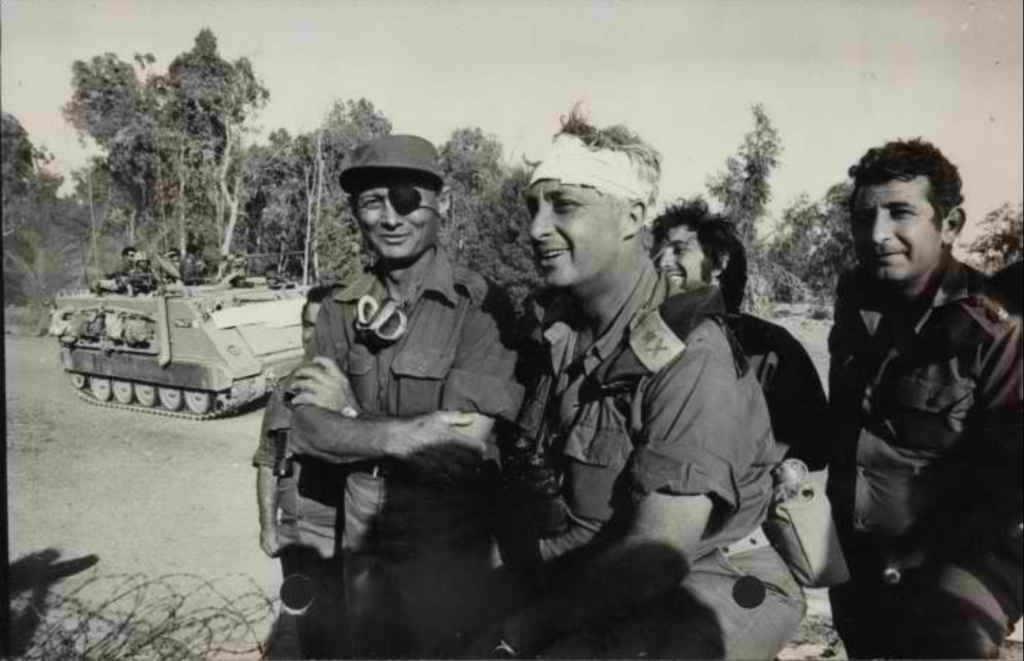

Dayan (left) and Sharon (center) after crossing the Suez Canal
(Photo: State Archives)
A significant portion of the intelligence gathered during combat, especially from signal interceptions (SIGINT) and aerial photography taken by Air Force pilots at great personal risk, either never reached or certainly did not arrive on time to brigade and tank battalion commanders and the infantry in the field, or to pilots embarking on combat sorties.
Furthermore, field commanders, at almost all ranks and in a significant number of combat units, went into decisive battles without trying to gather intelligence about the enemy's strength at the target and its preparations. In this regard, Ariel Sharon stood out positively. As the division commander, he utilized his division's reconnaissance battalion (Battalion 87) to identify the gap between two Egyptian armies, through which the forces crossed on October 15.
Between boldness and initiative: Based on what I've witnessed, I have no doubt that the IDF won the Yom Kippur War thanks to the motivation, boldness, responsibility and willingness to sacrifice of the commanders and soldiers on all fronts – land, air and sea. But another human factor stood out to me, which I believe gave us an advantage over the enemy armies and contributed significantly to the victory – the initiative of the Israeli commander and soldier.
Battalion and brigade commanders were relentless initiators, pushing forward relentlessly, with or without an order from above. However, there was a significant caveat to this approach – a notable portion of the field commanders in the armored and infantry units continued the blitzkrieg tradition that served the Germans well at the beginning of World War II and the IDF in the Six-Day War.
In many instances, they simply drove and charged forward, in the general direction of enemy formations, hoping to surprise and decimate them with the shock and firepower of the tanks. Simply put, they "butted their heads against the wall" until either the wall broke or the head broke.
This was the case even in the later stages of the war when Syrian and Egyptian forces were halted and the IDF shifted to a counter-offensive. There was time to gather intelligence, plan and execute complex maneuvers that would save lives and tanks. Here too, Ariel Sharon stood out positively. The battles he planned and pushed for had far-reaching strategic implications.
Lack of coordination: A severe deficiency in the IDF's ground forces operation during the Yom Kippur War was the lack of integration and cooperation among different elements. Tanks attacked or defended on their own, infantry operated almost alone with only symbolic tank and artillery cover. The Air Force barely contributed to the ground battle.
This deficiency led to unnecessary casualties and, at times, even local defeats. This was especially evident in battles such as the Chinese Farm in Sinai and the counter-offensive in the Syrian enclave. Tanks moving without infantry protection were prey to anti-tank ambushes, well-equipped with RPG rockets and deadly armor-piercing Sagger missiles. The infantry, moving without tank cover or air support on open carriers from World War II or on foot, suffered losses from enemy tank and artillery fire.
The "encircle and advance" strategy, the IDF's winning formula in the Six-Day War, did not work in 1973. Among other reasons, the Arab fighters in the Yom Kippur War displayed motivation and courage not seen in 1967. They also had combat experience from the War of Attrition and were better trained.
In any case, the massive retreats of Egyptian and Syrian soldiers from the battlefield, as seen in the Six-Day War, were not present during the Yom Kippur War. This fact, in my opinion, multiplies the military achievement of the IDF's reserve forces in the Yom Kippur War and attests to how valid and necessary the "people's army" model is. I doubt a professional mercenary army would have exhibited the motivation, audacity and initiative that prevailed in the Yom Kippur War. This was true fifty years ago, and I am convinced it remains true today.
WHERE ISRAEL STANDS NOW 50 YEARS ON - AMIR AVIVI
(ILTV)


